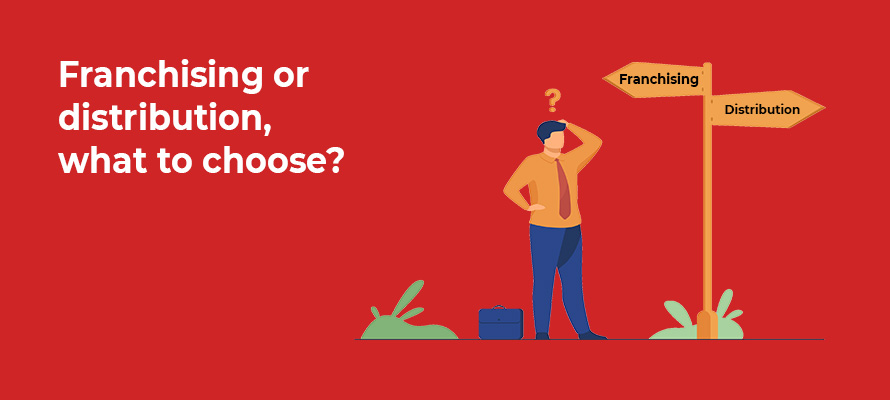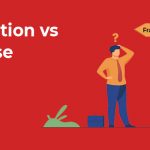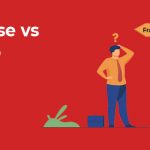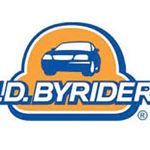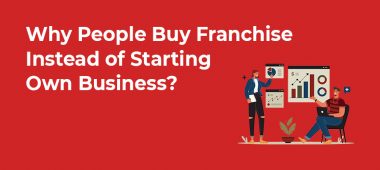Starting a business on your own can be an overwhelming proposition. Although there exist multiple ways, a business can enter the market as a seller. Various businesses around prefer to produce their products and services to sell. They then, promote and sell these products or services to earn a profit.
However, some of the start-ups prefer to do business which is related to parent companies such as distribution and franchise. It is because they feel that franchise management or distributorship can work the best for them.
Franchising vs Distribution
When it comes to choosing between franchising and distribution. Many of the people around fail to understand the distinctive difference between both of these businesses. Ultimately, it becomes harder for them to make the right decision while choosing between franchising or distribution.
However, to make things easier for you, we will have a look at the key differences, advantages, and disadvantages of franchising and distribution. So that at the end of this, it could become more comfortable for you to know franchising or distribution, which one can work better for you.
So, without any further delay, let’s start with franchising and distribution:
Franchising
Franchising is a contractual relationship in which the franchisor allows its franchisees:
- To use its trademark, brand, and trade names.
- To exercise precise control over franchise operations.
- To get training assistance and training from the franchisor.
- To make an initial payment to buy a franchise.
- To make continuing payments in terms of corporate marketing campaigns.
How do franchises work?
Franchise occurs when a franchisor allows someone a legal right to sell goods under the brand or trade name of its established business. In franchising, every franchisee will duplicate the proven business model of the franchisor.
As a franchisee, you will not only get the franchisor’s merchandise only but also the blueprint of how to achieve success in this. It generally means you will get ongoing support and training from the franchisor in terms of operations, marketing, business strategy, and more. In return, the franchisee has to make an initial payment, as well as ongoing royalties as specified in the franchising agreement.
Advantages of Franchising
Here we have enlisted some essential benefits of franchising you need to know:
Established brand
Franchises usually have an established brand name and reputation. So, starting a franchise with any successful and well-reputed business, franchisees will be able to reap the entire benefits of the success of the franchisor.
Effective support
The franchisor will offer ongoing support and training to its franchisees with straight operational guidelines so that each franchisee can acquire the best success opportunities.
Powerful marketing
Successful franchises have an excellent marketing pool by funding powerful marketing campaigns. Every franchise can get benefit from this powerful marketing approach.
Successful business model
Franchise chains are working around for years. They certainly have refined their strategies, products, and services over the year. The franchisor will provide you with its proven business model for franchisees. Ultimately, starting a business with a successful brand can save you from the efforts required to establish a business model.
Distribution
A goods manufacturer appoints any third party to sell or market its goods, that third party’s business is known as distribution. A distribution business purchases goods from the parent company on its account and distributes them under its business name.
The Distribution-ship business name has typically no association with the brand name or trademark of its parent company. Distribution-ship only needs to maintain minimum stocks to employ experienced and better servicing representatives.
How does distribution work?
A product distribution business allows an independent third-party to sell the goods of a parent company. However, when it comes to distribution, then this doesn’t operate similarly to franchising. It is because distributions are not allowed to utilize the business name or trademark of their parent company to do business. Instead, they have to work with their business name.
Even more, distribution’s goal is not to duplicate the success of the business under which they are operating. Distribution works as a product supplier only and is allowed to conduct business further as they find fit.
The distribution includes purchasing goods from an established company, warehousing those in their facilities, and then resell these products to consumers or retailers directly. More often, distribution businesses are not obliged to anything other than just maintaining their stocks and meeting the requirements of the minimum turnover level.
Benefits of distribution
Here are some advantages of distribution businesses you need to know:
Lower start-up costs
The distribution business requires lower costs to start-up. Even more, you don’t have to pay any continuing cost in terms of royalties to establish this type of business.
Quick set-up
When it comes to setting up your distribution business, then it usually requires a few days only to get done with this. Distributors can start earning within days after signing up.
Lower time requirements
Most commonly, the distribution business is of part-time nature which takes lower time to establish.
Franchising or Distribution: Key Differences
In standard terms both distribution and franchising are more often used loosely. However, actually, both of these have different meanings. Although the line between these two can be blurry more often. Here we have made an attempt to draw a line between both of these terms, i.e. franchising and distribution-ship.
| Different Aspects | Franchising | Distribution |
| Business Control | Franchising is a bit different than distribution-ship in terms of business control. It is because a franchisee usually exercises strict control under a franchise agreement. A franchisor contains a right to say in the entire important matters of a franchisee such as a methodology, merger, as well as branding, etc. | Although the business type distributorship contains a more traditional form of distributing services or products. According to this, the parent company is not allowed to exert actual control over the distributor. In short, the parent company doesn’t dictate to its distributors. |
| Start-up costs | Starting a franchise can be costly as compared to a distribution-ship. It is because it includes everything from buying a franchise, tools, and material purchase, allocating space, hiring employees, as well as their training. Therefore, you can expect to pay a bit higher in the case of a franchise. | In terms of start-up costs, distribution-ship may involve less cost relatively. It is because in this type of business, you only have to purchase some initial products and marketing material, and that’s it. |
| Other Business fees | Normally, franchises involve a fee in terms of royalty. Even, a specific percentage of their gross sales also go towards corporate marketing strategies or efforts. | However, in the case of distribution-ship, distributors have to pay a discounted price for their services or products. Even more, they have to sell the same to their clienteles for profit. |
| Operation Time Involved | When it comes to understanding the operation time required for franchising, then you must understand the fact that franchising is a full-time business. Even the time required to set-up a franchise is relatively long from six months or even more. | However, most of the distribution-ship businesses are of part-time nature. These can be started within a few days of signing up. |
| Support System | In franchising, franchisees usually get entire support from franchisors such as a successful and developed business format, cooperative structure, as well as intensive training. Also, franchisees get support in everything from test products to insurance to low-cost agreements of suppliers. All and all, the support system in franchising is immense. | When it comes to distribution, then more often distributors get very little support from their parent company beyond fulfillment services and supply. Even the training is also limited from the parent business organization. |
| Product Sources | More commonly, franchisees acquire materials from their specific distributors, combine those into a product, and then deliver the services effectively. | In the case of distribution-ship, distributors normally get products from their parent company directly to sell further. |
Franchising or distribution-ship: which one is better to go with?
When it comes to starting your business through distribution-ship, then it certainly needed less time and cost to make a start, but it will let you have a lesser control. It is because, with distribution-ship, you have to supply someone else’s products or services simply.
A distributor is not allowed to operate under the trademark of a company whose products it is distributing; rather, the distributor has to use its business name. Distribution-ship is just like reselling products or services of a company without conducting any business on behalf of its parent company.
However, in the case of franchises, you can maintain effective control over the operations of your business. Even more, franchising comes up with an extensive support system. Having a better support system while starting your own business can bring more advantages.
Under a franchise agreement, the franchisee is encouraged and permitted to use the brand name and trademark of the franchisor as a part of his regular business practices. In contrast, marketing and training support of the franchisor and a successful business format can help franchisees to grow their business in the best possible way.
After knowing all the details mentioned above, you can certainly choose your path smartly. Make sure to perform a self-assessment test to understand what’s your way to go and then mark your decision accordingly.
